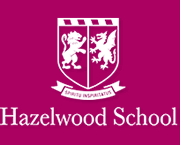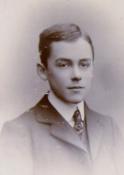
War Memorial
| Captain Hugh Ford PARBURY MC | |
|
17th (Duke of Cambridge's Own) Lancers Date of birth: 30th April 1886 Date of death: 20th July 1934 Died aged 48 Unknown |

|
| Hugh Ford Parbury was born at 3 De Vere Gardens, Kensington on the 30th of April 1886 the youngest son of Charles Parbury, a businessman, and Annie (nee Strachan) Parbury of 7 Lowndes Square, London. He was christened at St Stephen's Church, Kensington on the 4th of June 1886. He was educated at Hazelwood School until April 1899 where he was goalkeeper for the 2nd Football XI in 1898. He went on to Eton College where he was in R.P.L. Booker’s House until 1903. He was commissioned as a 2nd Lieutenant in the 4th Battalion Durham Light Infantry (Militia) on the 27th of February 1904, from where he transferred to the 17th (Duke of Cambridge's Own) Lancers with the same rank on the 28th of November 1905. He represented them at polo in the A Team when the regiment won the Meerut Polo Tournament in 1908. He was a Freemason and was admitted as a member of the Lodge of Hope on the 2nd of January 1909 while he was stationed at Meerut. He also played polo for the regiment in the Dunbar Cup of 1911. He was promoted to Lieutenant on the 12th of February 1912 and to Captain on the 15th of April 1914. Following the outbreak of war he embarked for France on the 12th of December 1914. At 3am on the morning of the 3rd of December 1917 he was slightly wounded when the camp at Villers Faucon was bombed by enemy aircraft. On the 21st of March 1918 the Germans launched their anticipated spring offensive and broke through the British lines in a number of places. On the 23rd of March a composite mounted force was assembled from units of the 2nd and 3rd Cavalry Divisions as well as detachments from the Canadian Cavalry. This force was known as "Harman's Detachment" and was under the command of Major General E. H. W Williams. Hugh Parbury was to command 150 men of the 7th Cavalry Brigade as part of the new unit. The newly formed detachment moved immediately to Ugny-le-Gay to fill a gap in the line which had opened up between the 14th and the 18th Divisions. He was awarded the Military Cross in the New Years Honours list of the 1st of January 1919. On the 18th of March 1919 he was seconded for service as Aide de Camp to Lord Willingdon, the newly appointed Governor of Madras and left for India where he began his new posting on the 10th of April 1919. He was promoted to Major on the 1st of April 1921 and was posted to Ireland. On the 2nd of October 1921 he was a passenger in a car driven by Harold Dawkins of the Royal Irish Constabulary which was heading for Earl's Army Camp at Galway. On route they offered a lift to Lieutenant Geoffrey Souchon, also of the 17th Lancers. As they passed the local town hall Souchon was hit in the head by a bullet and killed. An investigation concluded that he had been struck by a stray bullet fired during a dispute at a local wedding. He retired from the army on the 18th of April 1925. He lived at "Upton", Shrubbs Hill, Sunningdale in Berkshire. |
|
 | |
| Went on to Eton College |
Back